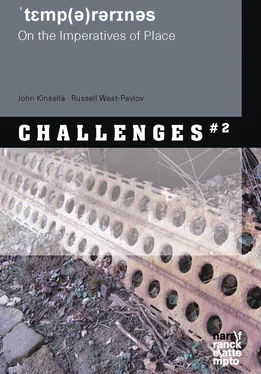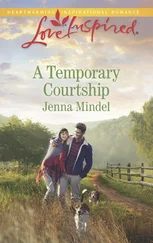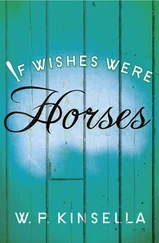1 ...7 8 9 11 12 13 ...25 mobile phones to play games on, and to feed families.
Bulldozers are observers of phenomena—decisions
are taken out of their hands. They are full of perceptions.
They will hear our pleas and struggle against their masters.
Bulldozers slice & dice, bulldozers tenderise, bulldozers
reshape the sandpit, make grrrriiing noises, kids’ motorskills.
Bulldozers slice the snake in half so it chases its own tail,
writing in front of its face. Bulldozers are vigorous
percussionists, sounding the snap and boom of hollows
caving in, feathers of the cockatoos a whisper in the roar.
Bulldozers deny the existence of Aether, though they know
deep down in their pistons, deep in their levers, that all
is spheres and heavens and voices of ancestors worry
at their peace. Bulldozers recognise final causes, and embrace
outcomes that put them out of work. There’s always more
scrub to delete, surely... Surely? O continuous tracked tractor,
O S and U blades, each to his orders, his skillset. Communal
as D9 Dozers (whose buckets uplift to asteroids waiting
to be quarried). O bulldozer! Your history! O those Holt tractors
working the paddocks, O the first slow tanks crushing
the battlefield. The interconnectedness of Being. Philosopher!
O your Makers—Cummings and Caterpillar—O great Cat
we grew up in their thrall whether we knew it or not—playing
sports where the woodlands grew, where you rode in after
the great trees had been removed. You innovate and flatten.
We must know your worldliness—working with companies
to make a world of endless horizons. It’s a team effort, excoriating
an eco-system. Not even you can tackle an old-growth tall tree alone.
But we know your power, your pedigree, your sheer bloody
mindedness. Sorry, forgive us, we should keep this civil, O dozer!
In you is a cosmology—we have yelled the names of bandicoots
and possums, of kangaroos and echidnas, of honeyeaters
and the day-sleeping tawny frogmouth you kill in its silence.
And now we stand before you, supplicant and yet resistant,
asking you to hear us over your war-cry, over your work
ethic being played for all it’s worth. Hear us, hear me —
don’t laugh at our bathos, take us seriously, forgive
our inarticulateness, our scrabbling for words as you crush
us, the world as we know it, the hands that fed you, that made you.
Listen not to those officials who have taken advantage
of their position, who have turned their offices to hate
the world and smile, kissing the tiny hands of babies
that you can barely hear as your engines roar with power.
But you don’t see the exquisite colour of the world, bulldozer—
green is your irritant. We understand, bulldozer, we do—
it is fear that compels you, rippling through eternity,
embracing the inorganics of modernity.
JK
Here I am sitting in a café in Lygon Street. A temporary presence. Flâneur. Non-participant observer. Watching from the outside. As I survey the locals streaming past, I let my mind go back at leisure to the past. Sitting here with Dan (who soon afterwards left for France, permanently, as it turned out), chatting in pretentious student French in the absence of any genuine Francophones with whom to converse. But was I not even then also a temporary presence? Waiting impatiently for the moment to expatriate myself as my interlocutor was also on the verge of doing?
Are we not always temporary presences? Above all as a white person in Australia! How can we ever claim to be anything but passing visitors with our two hundred years of temporary residence against seventy-thousand-plus of deep cohabitation with the land? Paul Carter (1996: 2) has a piece where he describes settlers as ‘gliding’ over or floating ‘off the ground’ in their weatherboard or brick-veneer houses on the fabled suburban block. This sense of distance manifested itself in my childhood and youth as a frequent sense of emptiness: on weekends, the sense of being a thousand miles from any human habitation, even though the sound of a lawnmower could be heard next door; or later, the experience of stepping out into a broad Carlton street, lined with brick terrace houses, shimmering in the summer heat, to see not a soul in sight; or the stillness of the rain-soddened bush and its expanses of khaki-olive eucalyptus canopy that earlier settlers had once described as eerie (and that I as a youth only learnt to love at the moment of departure): all forms of distance that translated the settler’s ignorance of the vibrant life of the land all around—or, in an even more extreme instance of dislocation, as a symptom of the disruption and destruction that the white invaders had wreaked (and continue to wreak) upon the land and its original inhabitants, leaving a gaping wound where once there had been a dense fabric of reciprocal communication and interdependence.
Now, as I sit here in Lygon Street, already remote from my own earlier sense of remoteness, I imagine my temporariness here in Australia against the background of an existence in Germany which has become pretty much permanent—and which I rather suspect will not result in any further expatriations.
But what is a presence? Is it also not a series of temporarinesses? A series of fragmented presents? As one intensity gives way to another, one basin of attraction is broken open by another pole of intense magnetization—a task, an idea, a momentary thought? What would be a permanent presence? Nothing more than the act of smoothing over these shifts from one present to another. A forgetting of the discontinuities that make up the pulses of life.
But these discontinuities themselves weave back together in a fabric of disparate threads. A year and a bit later. Here in the Black Forest, I constantly find myself being reminded, at the level of sensory or spatial memory, of the period when I worked on the North Devon coast in 1983. The overgrown roads with their steep sides brimming with luscious vegetation, the small streams cascading headlong down narrow valleys, and the lack of a view until one emerges where they open out at the valley floor … all this recalls the sunken lanes and the abrupt valley mouths of the coastal area between Lynmouth and Martinhoe where I worked for a spring, a summer and a winter. Time, says Gail Jones (2007: 182) is ‘recursion, fold, things revisiting’—as, I feel in this part of the Black Forest, is place.
Yet it doesn’t shift in loops or circles, it moves in spirals. Thus I am not the same person as then. There I was in search of a quintessential imagined English countryside that I never quite found—though I did occasionally glimpse it, always from afar, through the gates of some manorial estate or from between the trees of a coppice on that week-long walk through the Cotswolds from Cheltenham via Charlbury to Oxford. And I found other facets of it on the similar tramp that I made through the Lake District (including, almost emblematically, walking off the wrong side of Helvellyn in a thick fog, so that a knife-back ridge that was not Striding Edge took me down into a totally different valley from the one my itinerary had led me to expect).
Today, some of the questions that drove me out onto those scree slopes or down those country tracks have been laid to rest. But the anxious circling around one central interrogation—how to be in the world, when one is always too early, too late, at odds with it, out of place, precariously on the edge—has not abated: the spiralling continues. The walks along these tracks in the forest still teach me something. But the forest itself shifts and changes and reforms around me as I walk, rather like Tupia’s maps of the South Seas that showed the stars and islands always from the point of view of the navigator sailing with their help (Di Piazza and Pearthree 2007). The path that leads into the forest continues to beckon. But you never step into the same wood twice.
Читать дальше












